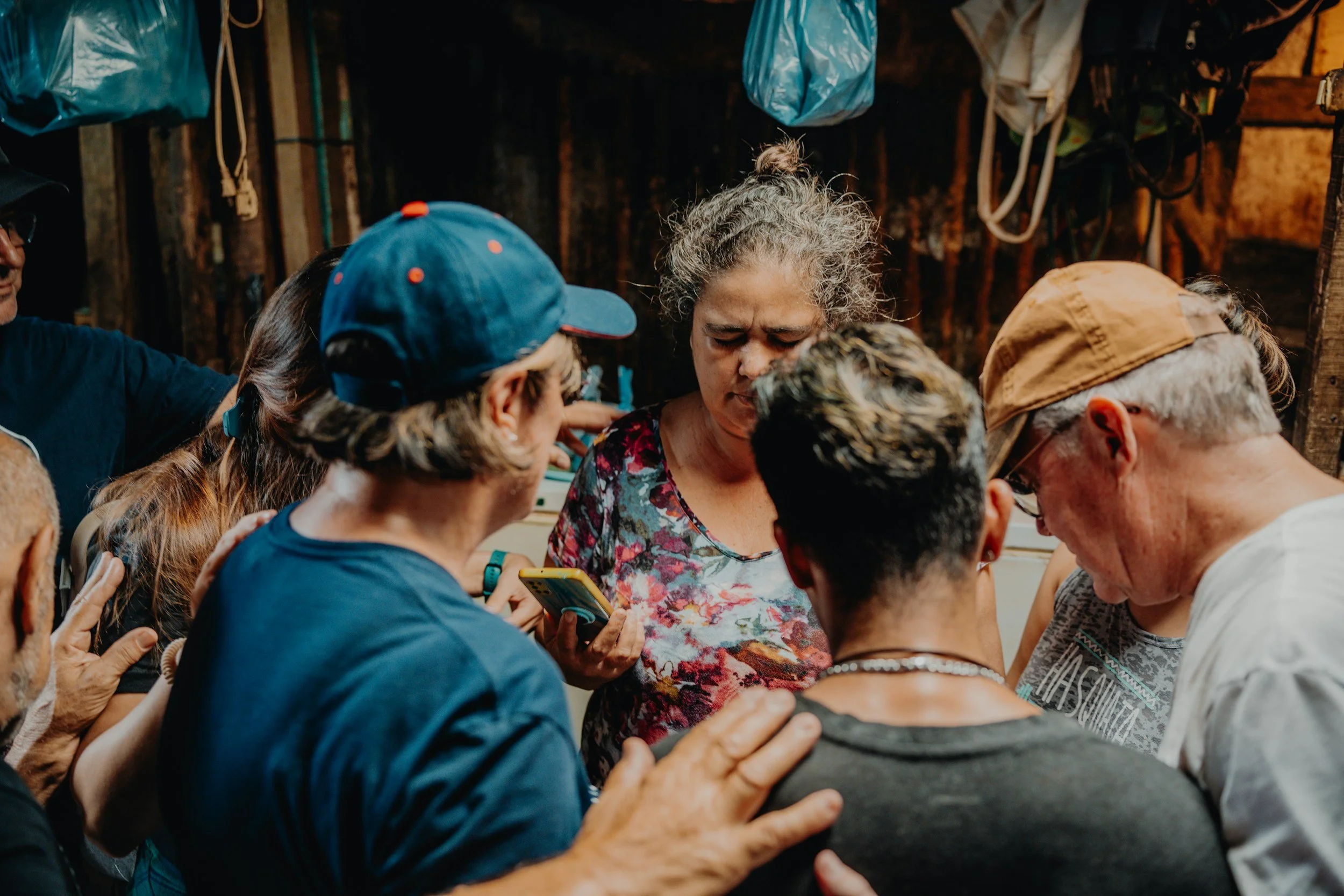
Connections
Building Meaningful Connections
There is something magical about feeling strongly connected to others and to the world around us. No one can truly thrive in isolation, and we are never truly independent, even as adults. We always function within a society that supports us in one way or another. When we connect meaningfully with ourselves and others, something special happens, and a sort of magic begins to unfold. We feel less isolated, more integrated into a larger whole, and a part of something greater. This changes the human condition, gives meaning to life, and motivates us to want more of what matters most: connection or love.
As we explore connections, we will start by examining four core component skills necessary for strong connections. TEACH Skills like attention, thought management, and emotion management are important for building connections, but additional skills, called executive skills, are crucial for social learning and connection-building. In this section, we begin with four executive skills that support strong connections.
Component Skills for Connections
Flexibility
Flexibility: When individuals are adaptable, they can navigate varying perspectives and accommodate the needs and emotions of those around them. Willingness to bend reflects an attitude of respect and consideration, allowing for more genuine interactions. Ultimately, the ability to remain flexible fosters an atmosphere that values each individual's uniqueness, paving the way for a richer, more meaningful connection.
Communication and Listening
Effective communication and listening foster mutual understanding and trust. Active listening, where one fully concentrates, understands, and responds thoughtfully, demonstrates respect and validation. This attentiveness not only makes others feel valued but also encourages a deeper exchange of ideas and emotions. By honing these skills, individuals can navigate conversations more effectively, address misunderstandings promptly, and ultimately enrich their relationships and pave the way for true collaboration and meaningful shared experiences.
Time Management
Time Management: By managing time, you create space for meaningful conversations and shared experiences, showing that you value the time spent with others. Being punctual and organized demonstrates reliability and respect, fostering trust and strengthening bonds. Balancing work and personal time ensures that you are present and engaged when connecting with family, friends, or colleagues. This focus on relationships cultivated through careful time allocation encourages deeper understanding and mutual support, ultimately enriching all of your connections.
Preseverence
Preseverance plays a vital role in improving connections with others by demonstrating commitment and resilience. In interpersonal relationships, when individuals face challenges or conflicts, those who persevere show others that they're valued and that the effort required to maintain the relationship is worth it. Moreover, perseverance fosters a sense of trust. When others see that a person's willing to invest time and energy into overcoming obstacles, it cultivates A deeper bond built on loyalty and support. Ultimately, perseverance enhances relationships, fostering a sense of stability and unity even through tough times.
Strategies to Strengthen Connections:
The need for social connection is baked into our DNA. It is how we regulate ourselves, arguably a biological necessity as vital as food and shelter. Historically, we learned to work together to build social structures, and to be banned from society was almost certainly a death sentence. However, connections extend beyond social structures, family, interpersonal relationships, and even safety; we also need healthy connections to ourselves, our community, our planet, and the powers that created this world we enjoy.
Friends and Family
Strong social connections are vital for mental and physical health. Daily contact with friends or family can reduce the risk of depression, dementia, stroke, anxiety, and heart disease. Even a brief conversation with a loved one can contribute to your overall well-being and longevity. These relationships create a safe space where individuals can express their feelings, share experiences, and seek advice, thereby alleviating stress and promoting well-being.
Parents and Children
Strong connections between parents and children lay the foundation for the child's emotional development and overall well-being. When parents foster secure, trusting relationships with their children they create an environment where children feel safe to express themselves and explore the world. This emotional security aids in reducing anxiety and stress, promoting better mental health outcomes.
Spouse or Partner
Partners who communicate openly and efficiently are more likely to address challenges collaboratively, thereby enhancing their problem-solving skills and resilience.A loving relationship encourages healthier habits such as regular exercise, balanced nutrition, and adequate sleep, as partners motivate and hold each other accountable. This holistic approach to well-being not only strengthens the relationship but also contributes to a greater overall quality of life for all individuals involved.
Connecting With Yourself
Being strongly connected to yourself enables you to recognize and understand your emotions, thoughts, and physical sensations, which supports better emotional regulation. By cultivating self-compassion and acceptance, you create a positive inner dialogue that reduces anxiety and builds resilience against external pressures. A strong sense of self encourages you to prioritize your physical health by recognizing your body's needs, leading to healthier lifestyle choices such as balanced nutrition, regular exercise, and adequate rest.
Connection with Nature
Immersing ourselves in natural environments has been shown to reduce stress, anxiety, and depression, fostering a sense of calm and clarity. This connection encourages mindfulness, allowing us to be present and fully engaged with the sights, sounds, and sensations of the natural world, Cultivating a strong bond with nature not only enriches our mental state but also supports our physical vitality, leading to a more balanced and fulfilling life.
Spiritual Connections
Spiritual Connections nurture a deeper understanding of oneself and one's place in the world, empowering individuals to lead more fulfilling lives, promoting both mental clarity and physical vitality. These connections foster a sense of purpose and belonging, reduce stress, anxiety, and feelings of isolation.
Piorities play a significant role in life and in developing strong connections. As we progress through life, we make decisions that shape brain development. Over time, our decisions shape how our brains function, and we gradually develop an operating system, whether we are aware of it or not. This operating system is highly individualized and very personal. Other people and institutions influence us, but ultimately, our choices shape our system, values, and lives. We can modify our operating system throughout life by updating the reward value of various behaviors. Recognizing that we exist in a complex system of greater and higher power enables us to constantly fine-tune our operating system. There is beauty and wisdom in nature that is far beyond our grasp; we are part of this collective, and the collective is a part of us.

-
Once upon a time, a wise man was careful and cautious, but he did not feel complete. So, he went to visit a man who was complete and asked, “What must I do to be complete?” The complete man asked, “What do you want most?” The wise man thought for a moment and said, “I want to feel safe.” The complete man said, “To have safety, you must give up fear.” The wise man said, “But if I give up fear, I might not be cautious; I might lose everything.” The complete man said, “You can give up fear and still be safe, but to do this, you must control your imagination, which causes unnecessary fear.” So, the wise man went away and learned to control his Imagination, and he could live without fear and be safe and at peace, but he still did not feel complete.
So, he returned to the complete man and asked again, “What must I do to be complete?” The complete man asked again, “What do you want most?” The wise man said, “When I learned to control my fear and imagination, I found safety, but I still need something else.” The complete man asked then, “What do you want even more than safety?” The wise man thought and said, “I really want love.” The complete man said. “To get love, you need connection.” So, the wise man went out and discovered connections, and he was complete.
We all need to be safe; this is how we survive. Fear helps keep us safe. But when fear becomes too strong, it isolates us from others and destroys peace. Imagination allows us to solve problems like creating homes, tools, and places to work. But when Imagination becomes too strong, we want more and often imagine things that are not true. When Fear and Imagination grow up and start working together, we learn not to want more, to feel safe, and to be at peace, but….. we still need connection.
May you be at Peace
May you be Happy
May you be Free from Suffering
May you be Connected











